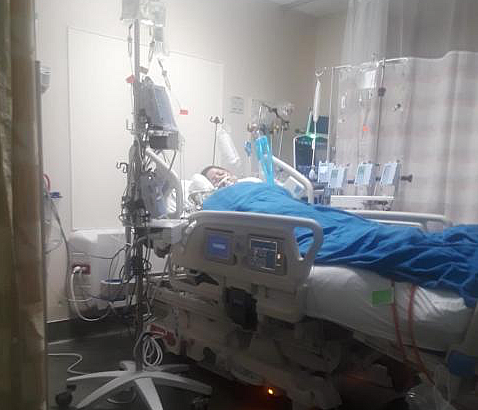Reporters find Florida’s lax regulations too often make cosmetic surgery a death sentence

Adianet Galván died after botched cosmetic surgery in Florida. (Photo via Univision)
My new reporting partner Erika and I had never worked together before. But each one liked the work that the other did. Erika had been doing investigative journalism in South Florida for years, and I was new to the city. As fellow news junkies, we talked about the increasing number of cases we reported on a daily basis about women dying from cosmetic surgeries in Florida, and people who were arrested for not being actual doctors.
Our conversation coincided with the opportunity to apply to the USC National Fellowship, a suggestion by our news director Samuel Belilty. When we sat down to come up with a story pitch, we knew it had to be the surgeries story.
Our time was very limited, and we went to California without really knowing what the focus of our investigation would be. During the fellowship week, it was very useful to learn from health journalists, since it wasn’t out beat. It also gave us a boost of confidence after learning that the story was interesting to many people and had a lot of potential. Sometimes, you start to doubt your story.
Once back in Miami, we struggled to put together a work schedule, because we both had to continue with our daily tasks, and we also worked in two different departments: Erika on television, and I was a reporter for Univision.com, our written news outlet.
The first thing we did was a Google crawl of all the deaths and incidents that had been reported in recent years in connection with these surgeries. The results were endless. At the same time, we began requesting public records from the Florida Department of Health (FDOH).
In our research we found many things that surprised us, things we never thought happened in our state:
-
We started by making a database with the deaths we had found in news reports, and requested data from FDOH. The first surprise was our discovery that no state agency keeps records of deaths classified by cosmetic surgeries.
-
Then we built our own database, consisting only of women for whom we were able to get a forensic report. We found 14 such cases in the last 5 years. We are almost certain that this number is way lower than the actual one, but again there is no data!
-
Little by little, we began to realize that the biggest problem were Florida laws. Our laws are not protecting women. Among other things, we learned that: The law allows doctors who are not surgeons to perform dangerous surgeries; many of these surgeries are done in cosmetic centers that are located in shopping centers; and although some are very large and luxurious, they are medical clinics. The state health department can’t regulate these centers because their owners are not doctors. That means, anyone can open one of these centers, which are not controlled by FDOH, because it is not associated to doctor's license.
-
In addition, by law, neither the centers nor the doctors are obligated to carry insurance. In other words, if something happens during a surgery, patients can forget about compensation of any kind.
-
We ended up convinced that this is a national issue, not just a Florida matter. Ten out of the 14 deaths analyzed in our investigation were women from other countries or states who came to Florida, attracted by the tempting prices and the procedures on offer.
Having discovered all of that, we decided that the most important thing was to put our series’ focus on how state law allows these things to happen here. We knew we had to let people know that this was happening.
One lesson for other reporters is that sometimes a single clue or daily news coverage can point you to a much bigger problem. Before starting to investigate, we were very worried about whether we had a story or not. Only by digging and digging did we find something huge. The story changed, as almost always happens during reporting.
We knew we had to feature victims of this problem and give them a voice. To contact the families of victims, we used previous coverage but also social media. We spent a lot of time on Facebook! We searched by name, by friends, friends of friends, family, and so on. Do not underestimate the power of social media. For us, it was game-changing.
We strongly believe that everyone is free to make decisions regarding their body. However, we have said many times that that whoever does so should be informed of the risks. But above all, we believe that the pressure and the focus should be on the lack of laws to regulate these cosmetic centers.
We are proud to say that a new law project to regulate cosmetic centers was introduced in Tallahassee by state Sen. Anitere Flores, and has been approved by the Florida Senate during the recent legislative session. We were ready with videos, and our story ran during the session.
**


